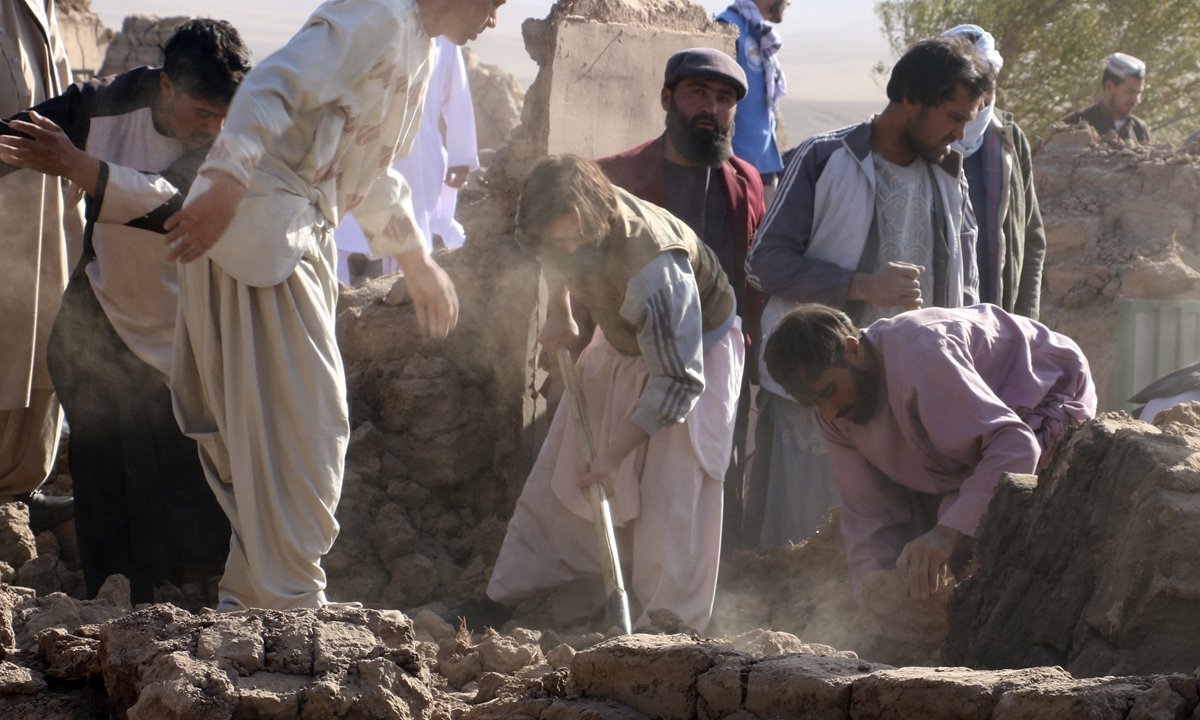On a fateful Saturday, the earth trembled beneath Herat province in western Afghanistan. A magnitude-6.2 earthquake struck, unfolding an unprecedented catastrophe that would result in the loss of over 2,000 lives and injuries to almost 10,000 individuals. The international community watched in horror, and in response, China extended a helping hand to aid Afghanistan’s disaster relief endeavors. This act came at a time when Afghanistan, already grappling with the consequences of war, needed global support more than ever.
China’s decision to support Afghanistan resonates as a testament to the need for global solidarity in times of natural calamities. Such gestures emphasize that even in the face of geopolitical complexities, humanitarian concerns should take precedence.
The Magnitude of the Disaster
Detailed reports from global news agency Reuters painted a grim picture. As of the most recent count, the death toll reached 2,053, with injuries documented at 9,240. The destruction wasn’t just confined to human lives. The tremors left behind a trail of devastation, obliterating or damaging over 1,320 houses. The initial quake, which occurred around 11 am local time, was succeeded by at least three strong aftershocks, further intensifying the panic and turmoil in the region.
Janan Sayeeq, the spokesperson for the Ministry of Disasters of the Taliban government, briefed the media about the immediate relief operations. According to Sayeeq, ten rescue teams were rapidly deployed in the quake-affected region, which is proximate to the Iranian border.
China’s Outpouring of Support and Condolences
China’s prompt response came through a press release from the Chinese Foreign Ministry on the very next day. The statement read: “We deeply mourn for the victims and offer our sincere sympathies to the injured and the families who have lost loved ones. We believe that the people of Afghanistan will overcome the impact of the disaster and rebuild their homes at an early date. We will do our best to assist in Afghanistan’s disaster-relief efforts in light of its needs.”
Further, the release confirmed that no Chinese nationals were affected by the earthquakes, emphasizing the purely humanitarian motivation behind their assistance.
Xu Wei, the spokesman for the Chinese International Development Cooperation Agency, further articulated China’s sentiments, “We extend our condolences for the severe casualties and property losses caused by the earthquake in Afghanistan, and we are willing to provide emergency humanitarian assistance according to the needs of the affected people.”
The Underlying Concerns: Afghanistan’s Architectural Infrastructure and Previous Crises
Zhu Yongbiao, the director of the Center for Afghanistan Studies at Lanzhou University, offered insights into some of the underlying factors exacerbating the effects of such natural disasters in Afghanistan. The architecture in many urban areas, especially, isn’t built to withstand the might of tremors. This architectural vulnerability, coupled with the challenges of rescue operations, suggests that the death toll might see a further surge in the coming days.
Furthermore, Afghanistan’s road to economic recovery has been fraught with setbacks. The nation is still trying to recuperate from the aftershocks of last year’s earthquakes, along with other prevailing crises. As Zhu pointed out, the recent seismic activities might compound the ongoing humanitarian crisis and hinder Afghanistan’s economic rebound.
International Relations and the Challenge of Aid
Afghanistan’s current political climate adds another layer of complexity to the situation. The Taliban government’s strained or non-existent relations with numerous countries could pose significant challenges in procuring international aid.
Zhu highlighted another concern that could potentially overshadow Afghanistan’s immediate need for support. With the global media spotlight focused on crises like the Israel-Gaza conflict and the Russia-Ukraine standoff, there’s a genuine fear that Afghanistan’s plight might be overshadowed, further impeding the influx of necessary aid.
Zhu fervently advocated for an unwavering international focus on Afghanistan, urging the global community to prioritize the pressing humanitarian needs of the Afghan people.
UN’s Role in Immediate Relief Operations
The United Nations, staying true to its mandate, didn’t remain a silent spectator. As per the latest information, various humanitarian partners under the UN’s aegis have jump-started relief efforts. Immediate medical assistance, trauma support, emergency shelter provisions, food supplies, and other essential services are being provided to the affected areas. This multi-pronged approach is instrumental in alleviating the immediate distress and setting the stage for longer-term rehabilitation.
Conclusion
Natural disasters are beyond human control, but our response to them defines our humanity. Afghanistan’s tragic earthquake underscores the necessity for nations to transcend political and geographical boundaries to stand united in the face of adversity. China’s supportive gesture, coupled with the global community’s ongoing relief efforts, sends out a powerful message of hope, resilience, and shared human values.
Read More:
